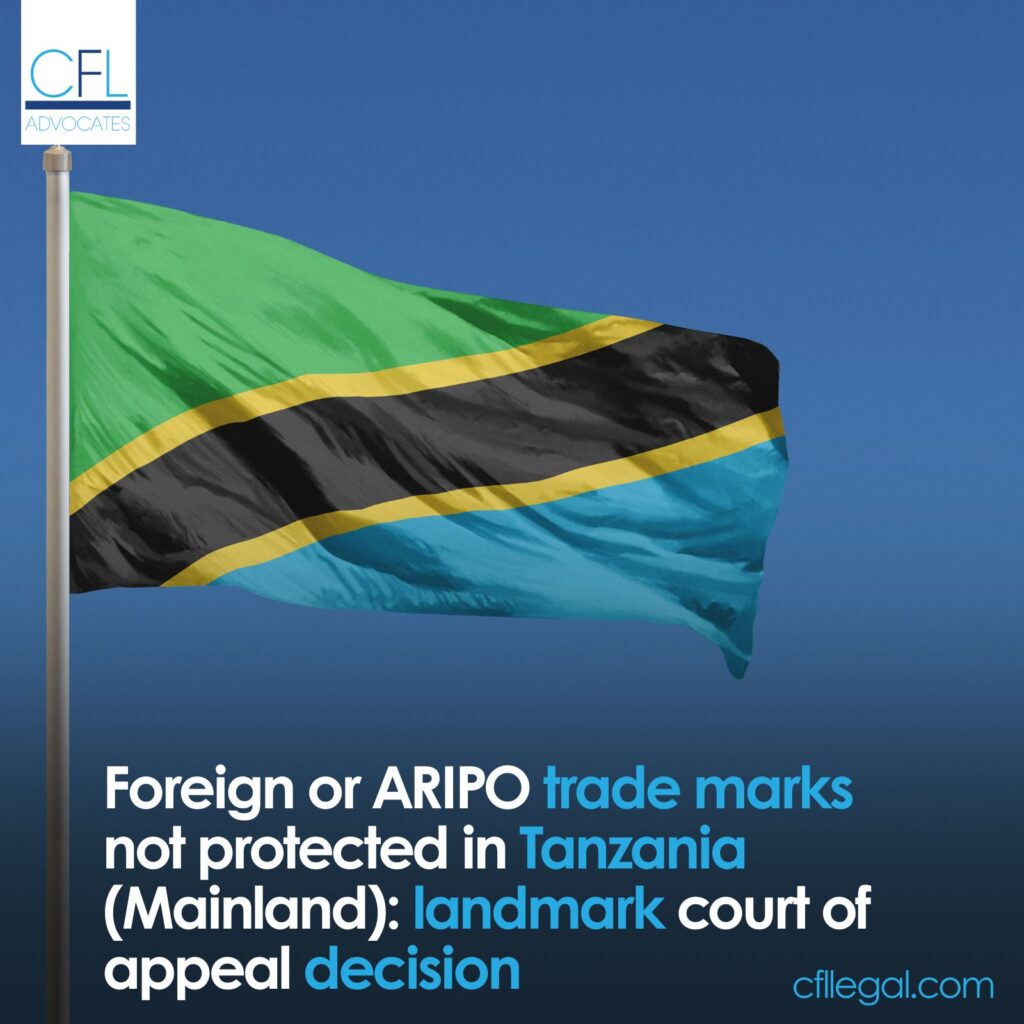
The Court of Appeal of Tanzania has delivered a landmark decision in Lakairo Industries Group Co. Ltd & Others v. Kenafrica Industries Ltd & Others, Civil Appeal No. 593 of 2022 (26 September 2025), reaffirming that foreign or ARIPO trade mark registrations do not confer enforceable rights in Tanzania without local registration.
This ruling sets a significant precedent in Tanzanian trade mark jurisprudence and underscores the territorial nature of intellectual property rights in the country.
Key highlights of the decision
- Protection limited to domestic registration
The Court reaffirmed that under the Trade and Service Marks Act, Cap. 326, exclusive trade mark rights exist only upon registration in Tanzania. In this case, Kenafrica Industries, a Kenyan company, relied on its Kenyan and ARIPO registrations obtained under the Banjul Protocol. While Tanzania is recorded by ARIPO as having acceded to the Banjul Protocol on 1 September 1999, the country follows a dualist legal system and has not ratified or domesticated the Protocol through national legislation. Consequently, the Court held that the Banjul Protocol has no legal force in Tanzania, and ARIPO registrations are not effective or enforceable within the country.
- Damages overturned
The Court of Appeal set aside the earlier High Court award of damages amounting to Tzs. 3.97 billion, holding that special damages must be expressly claimed and proven with certainty.
- Validity of local marks upheld
The Court found that the Tanzanian company’s registrations (Lakairo) were valid and could not be cancelled based on foreign rights. The appeal succeeded in full, with costs awarded to the appellants.
This decision reinforces that trade mark protection in Tanzania can only be secured through local registration. Although Tanzania is a member of ARIPO, it merely acceded to the Banjul Protocol at the international level and has not ratified or domesticated it under national law. As a result, ARIPO trade marks designating Tanzania have no legal effect within the country. Similarly, Tanzania is not a member of the Madrid System for the International Registration of Marks, meaning it cannot be designated in an international application. Foreign, ARIPO, or Madrid registrations; regardless of prior use, reputation, or seniority; do not automatically extend protection to the Tanzanian market. To obtain enforceable rights, proprietors must file national applications directly with the Business Registrations and Licensing Agency (BRELA).
In light of this development, trade mark owners are encouraged to review their existing portfolios to identify marks that require national registration in Tanzania. Where protection is sought or use is ongoing, it is prudent that proprietors proceed to file or refile trade marks locally to ensure enforceability.
We continue to monitor developments in the region and remains available to advise clients on the most appropriate strategies for protecting and enforcing their trade mark rights in Tanzania and beyond. We will also continue to monitor legislative and policy developments regarding Tanzania’s potential domestic implementation of the Banjul Protocol.
For further assistance or inquiries, please contact us at info@cfllegal.com.


